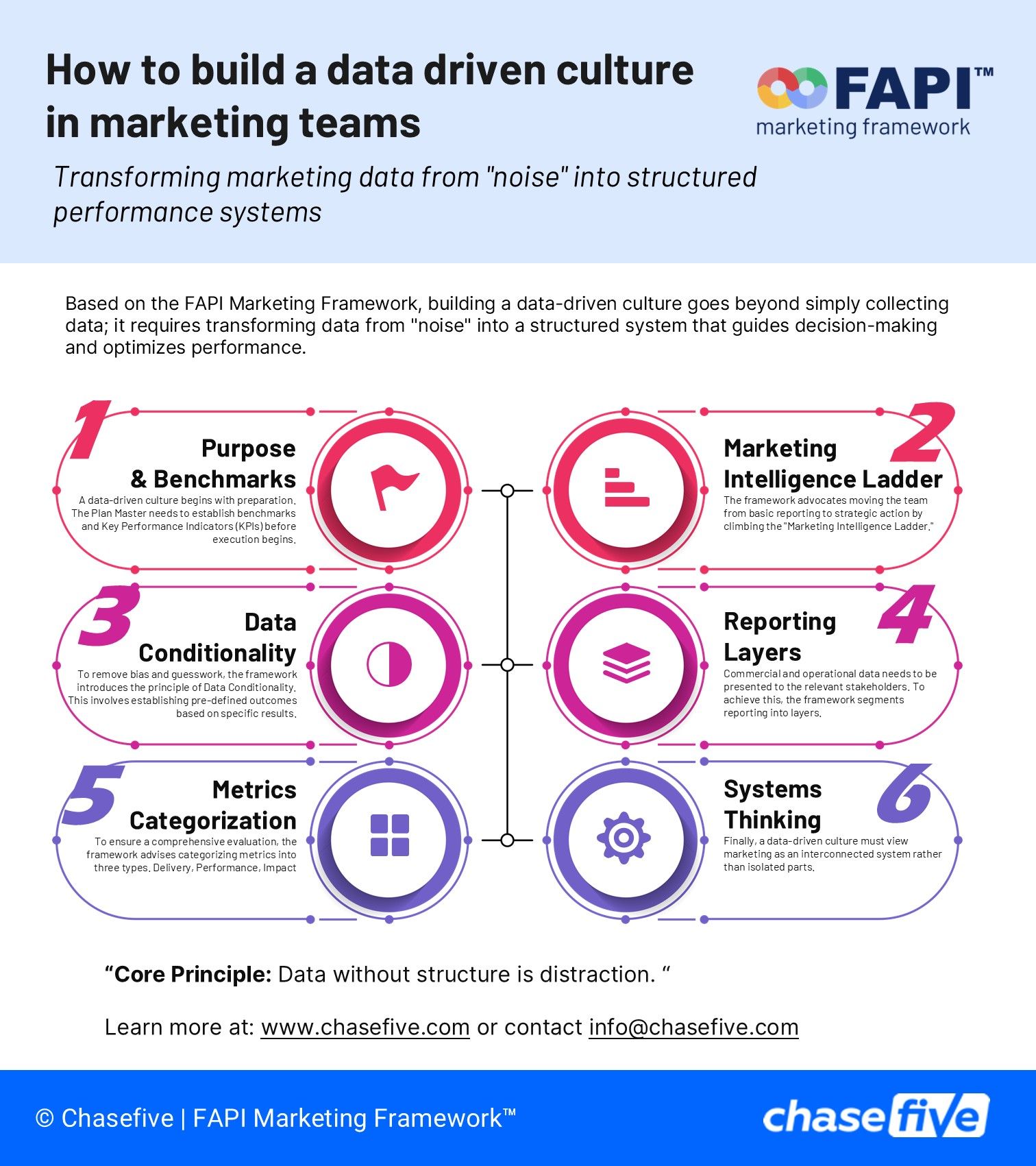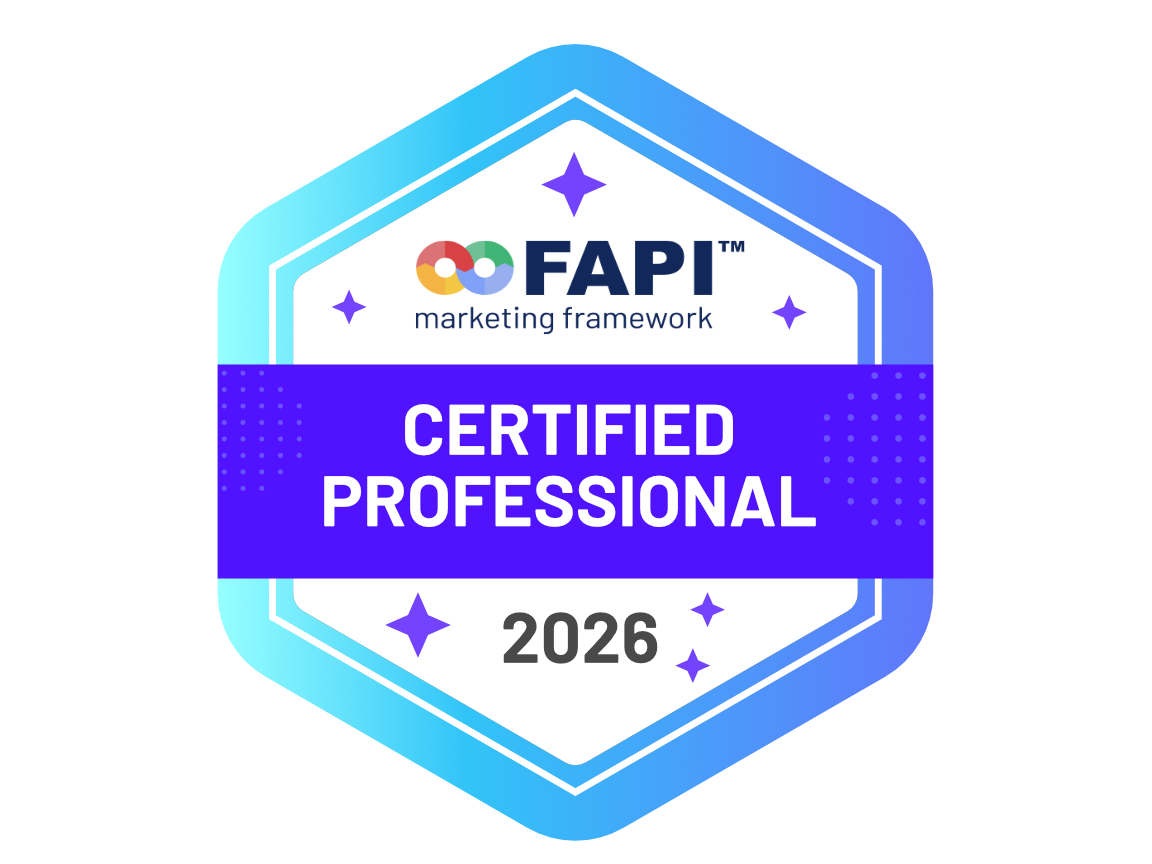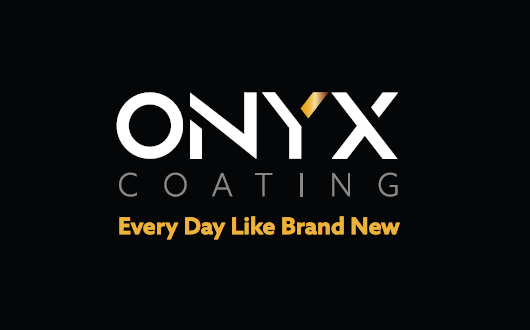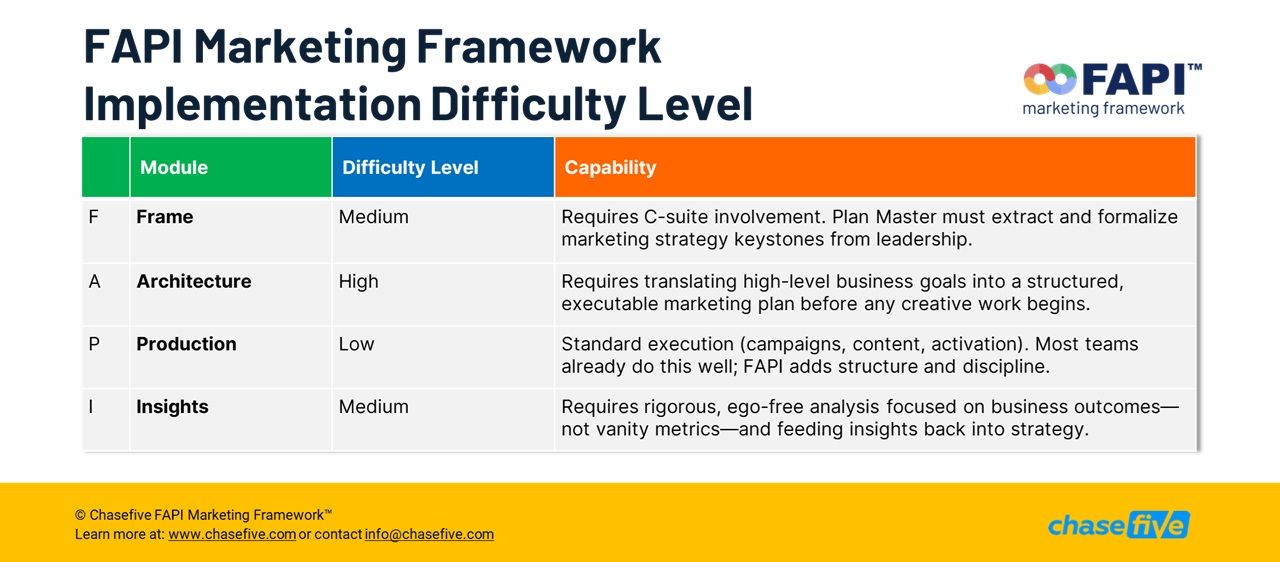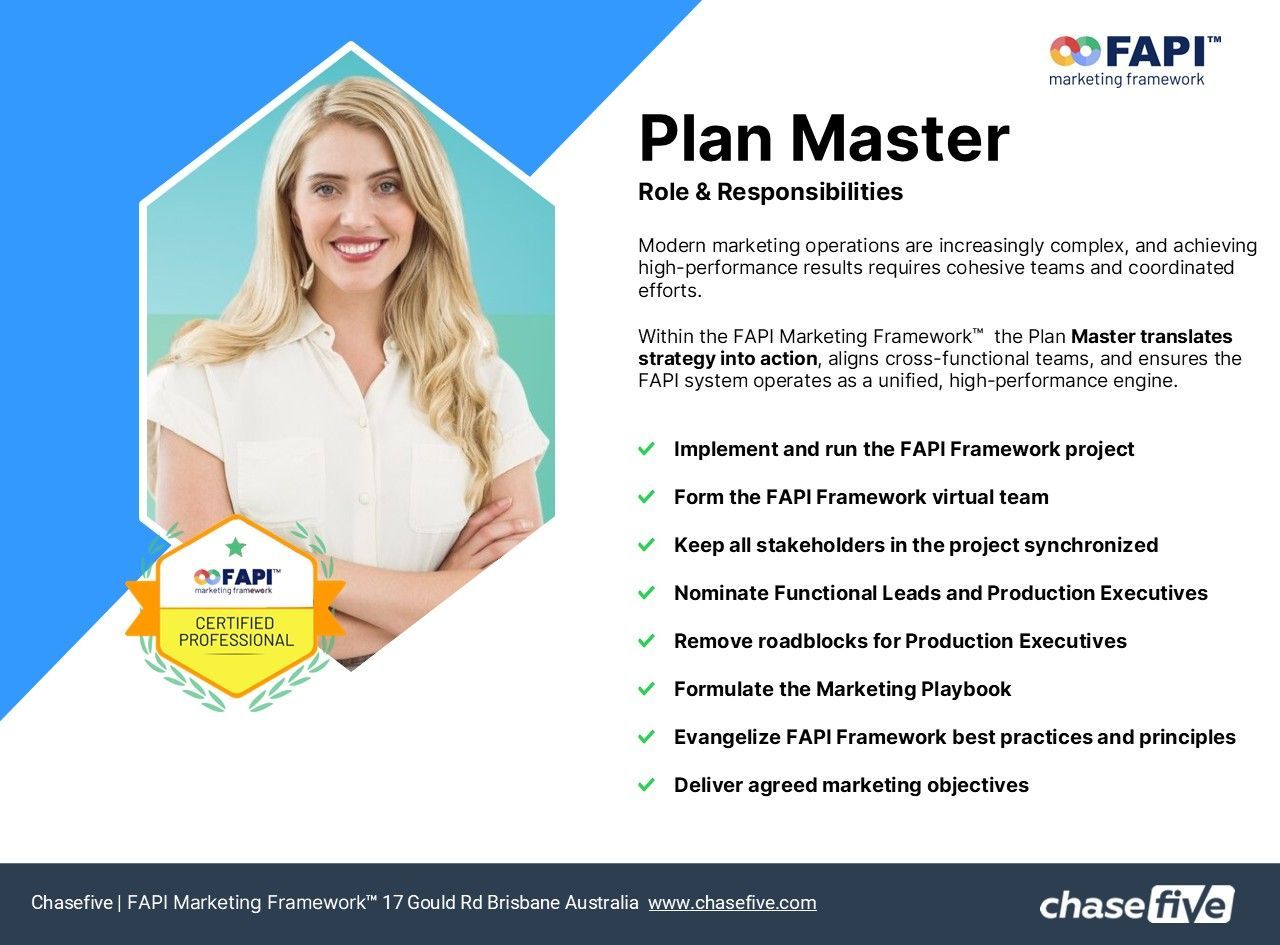The benefits of obtaining the FAPI Marketing Framework™ Certification. Mastering the art of modern marketing management.
The FAPI Marketing Framework™ Certification is a professional credential that validates your expertise in implementing the FAPI Marketing Framework, a sequential planning and management methodology for building high-performing marketing functions in businesses of all sizes. Earning this certification demonstrates your:
- Deep understanding of the core principles and best practices in marketing planning and management.
- Ability to create well-rounded marketing plans that drive results and deliver measurable success.
- Proficiency in using the FAPI Framework to improve marketing alignment with business goals and optimize the marketing process.
Who Should Consider the FAPI Marketing Framework™ Certification
The FAPI Marketing Framework™ Certification is beneficial for a wide range of professionals involved in marketing, including:
A common question we receive is Who Should Consider the FAPI Marketing Framework Certification.
The FAPI Marketing Framework Certification is beneficial for a wide range of professionals involved in marketing, including:
- Marketing Managers and Directors leading marketing teams and responsible for developing and implementing strategic plans.
- Brand and Product Managers managing marketing activities for specific brands or products.
- Marketing Consultants and Strategists advising businesses on marketing strategy and implementation.
- Project Managers overseeing the execution of marketing campaigns and initiatives.
- Business leaders and General Managers looking to understand marketing organizational concepts and strategies to better collaborate with marketing teams and improve performance.
- Marketing Professionals who want to Advance Their Careers
- So why wait, start your FAPI Marketing Framework Certification Course
What are the prerequisites for enrolling in the FAPI Marketing Framework™ Certification program?
There are no formal prerequisites for enrolling in the FAPI Marketing Framework™ Certification program. However, it is recommended that participants have a basic understanding of marketing concepts and principles. Prior experience in marketing roles or projects would also be beneficial.
- The FAPI Academy offers various resources to help individuals prepare for the certification, including:
- The FAPI Marketing Framework™ Guidebook Modern Marketing Architecture for a comprehensive overview of the framework.
- FAPI Marketing Planner: A software tool for applying the framework in practice.
- FAPI Academy Online Courses: Online modules covering different aspects of the framework.
- Certified FAPI Professional Community: Network with other certified professionals and learn from their experiences.
How is the FAPI Marketing Framework™ Certification program structured?
The FAPI Marketing Framework™ Certification program consists of several learning and assessment components:
- Self-Paced Learning: This provides access to the FAPI Marketing Framework™ Guidebook, online modules, and other resources. You can progress at your own pace and revisit materials as needed.
- Instructor-Led Training (Optional): Live online or in-person training sessions with FAPI-certified instructors offer interactive learning and deeper insights.
- FAPI Marketing Planner Training: Gain hands-on experience applying the framework through the dedicated software tool.
- Practice Exams: Test your knowledge and readiness for the final exam with practice assessments.
- Final Exam: The final exam is a computer-based test that assesses your understanding of the FAPI framework and its application.
What skills and knowledge can participants expect to gain from this certification?
By completing the FAPI Marketing Framework™ Certification program, you can expect to develop the following skills and knowledge:
- Strategic Marketing Planning: Learn how to create comprehensive marketing plans aligned with business goals and objectives.
- Marketing Process Optimization: Understand the FAPI methodology for streamlining and improving marketing activities.
- Metrics and Measurement: Develop skills in tracking marketing performance and demonstrating ROI.
- Resource Management: Master effective allocation of marketing resources for increased efficiency.
- Stakeholder Engagement: Enhance collaboration and communication with internal and external stakeholders.
- Leadership and Change Management: Lead the implementation of the FAPI framework and navigate organizational change.
- Critical Thinking and Problem-Solving: Apply the framework to analyze marketing challenges and develop effective solutions.
How is the FAPI Marketing Framework™ Certification assessed and evaluated?
The FAPI Marketing Framework™ Certification program utilizes a two-pronged approach to assessment:
- Continuous Assessment: Throughout the self-paced learning and FAPI Marketing Planner training, you complete quizzes, assignments, and exercises to evaluate your understanding of the concepts.
- Final Exam: The final exam is a multiple-choice and case study-based assessment that comprehensively tests your knowledge and application of the FAPI framework.
To earn the FAPI Marketing Framework™ Certification, you need to successfully pass both the continuous assessment and the final exam. Upon successful completion, you receive a recognized credential acknowledging your expertise in the FAPI Marketing Framework methodology.
